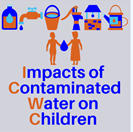2021/22 Recipients of UCL Health of the Public Small Grants Scheme announced
1 January 2022
In September 2021, UCL Health of the Public, with support from the UCL Faculty of Population Health Sciences, launched the second round of our small grants scheme to encourage new cross-disciplinary research collaborations to find ways of improving the health of the public.

Six cross-disciplinary projects will receive funding over the next six months to deliver collaborative research that has the potential to transform the public health landscape and help us to prevent disease, promote health, and prolong life in the population as a whole. The Scheme will support collaborations addressing challenges in the areas of cardiovascular disease prevention, diabetes, healthy built environments, water pollution and health inequalities.
Professor Graham Hart, UCL Health of the Public co-Director said: "UCL Health of the Public is bringing together researchers from across the university from a wide range of disciplines. I’m delighted that so many early career researchers applied and were successful. These exciting projects will help us improve health at a population level. Many thanks to all the applicants, and warm congratulations to those who were successful in what was an exceptionally competitive field."
Recipients:
Applicants | Title | Description | Outputs |
|---|---|---|---|
Kelly Dickson and Lyn Ang (Institute of Education) | East London Cardiovascular Disease Prevention (ELoPE) Health Promotion and Education Programme: Scoping Review and Stakeholder Consultation to support intervention development and collaborative partnerships | Cardiovascular disease (CVD) prevention is a major public health priority that requires an interdisciplinary approach, merging educational components with health to achieve desirable outcomes. This project is to further develop an existing primary school-based Cardiovascular disease (CVD) programme by incorporating robust evidence from other school-based health promotion studies and educational theory, determining key factors and mechanisms of action to help refine a more potentially effective behaviour change intervention and inform future research priorities. | |
Phil Symonds (Bartlett School of Architecture) and Pia Hardelid (Great Ormond Street Institute for Child Health) | houSing feaTures and Risk of Injury in chilDrEn (STRIDE) | Unintentional injuries (UI) in children constitute a major public health problem and can result in substantial long-term ill health, disability and even death. After cancer, childhood accidents are the second most common cause of death for 1-4 year olds in England and Wales. Injuries are preventable, and the vast majority of UI among children under 5 years old in high income countries take place in the home. The primary aim of this project will be to investigate the impact of dwelling and household characteristics on UI in children under 5 years old. | Webinar: Housing data & health impacts |
Maria Kett (Institute of Epidemiology and Health Care) and Julius Mugwagwa (STEaPP) | Tackling a Syndemic: Diabetes and Lessons from COVID-19 | This research will bring together academics and practitioners to better understand the mechanisms needed to tackle syndemic health issues, learning lessons from the impact of Covid-19 on communities. It will focus on the London borough of Brent, a diverse area which has one of the highest poverty rates in both London and UK, and one of the highest Covid-19 death rates in the country. The project will explore the role of trust, accountability, agency (regarding public health approaches) in a post-Covid world. | |
| Luiza Campos (UCL Dept of Civil, Environmental & Geomatic Engineering), Monica Lakhanpaul (UCL Great Ormond Street Institute of Child Health), Priti Parikh (UCL Engineering for International Development Centre), Kaushik Sarkar (Aceso Global Health Consultants) & Carol Vigurs (UCL Institute of Social Research). Research Assistants: Eniola Shittu & Marta Koch (UCL Department of Civil, Environmental & Geomatic Engineering) | Exploring the impacts of water contaminated by emerging pollutants on vulnerable children – the Impacts of Contaminated Water on Children (ICWC) project.
| Water pollution is responsible for an estimated 1.8 million deaths per year. There is evidence that chemical substances, even in very low quantities, may cause chronic toxicity, endocrine disruption and the development of bacterial pathogen resistance. There are currently millions of children aged 0-5 in low-and-middle-income countries (LMICs) exposed to chemicals affecting their physical health, development and wellbeing in the long-term. The aim of this project is to map the existing evidence on the effects of water chemicals on children in LMICs in line with UN SDGs 3 (health issues), 6 (water and sanitation), 10 (inequalities), 11 (human settlements) and 17 (partnerships) through a scoping review and a co-design stakeholder workshop. | Follow the project on social media: Explore their Wakelet project timeline here. Project hashtag: #ICWCProjectUCL |
Richard Beckett (UCL Institute for Environmental Design and Engineering) and Lena Ciric (Dept of Civil, Environ &Geomatic Eng) | Assessing the viability of a novel probiotic building prototype to increase the diversity of environmental microbes in indoor environments | There is growing evidence which suggests that exposure to highly diverse microbial communities (e.g. those found in the natural environment) has a positive effect on the immune system, which has impacts on various aspects of health including fewer allergies, better immune response to infections and even improved mental health. This is a new collaborative project between the disciplines of architecture and environmental microbiology which aims to find novel ways to design healthy built environments and infrastructures. | |
Jessica Sheringham (Institute of Epidemiology and Health Care) and Marcella Ucci (Institute for Environmental Design and Engineering) | Optimising the use of administrative data on housing and health inequalities to reduce local health and care inequalities | This new collaboration between public health and built environment academics and two London boroughs aims to understand the levers for addressing health inequalities with respect to local housing police and strategy, by using administrative data. It seeks to advance the understanding of the environmental determinants of health at household level that local interventions can target. This work is particularly relevant to London, characterised by stark variations in health and housing within densely populated localities. As national reports indicate, findings should also have UK-wide relevance. |
 Close
Close


